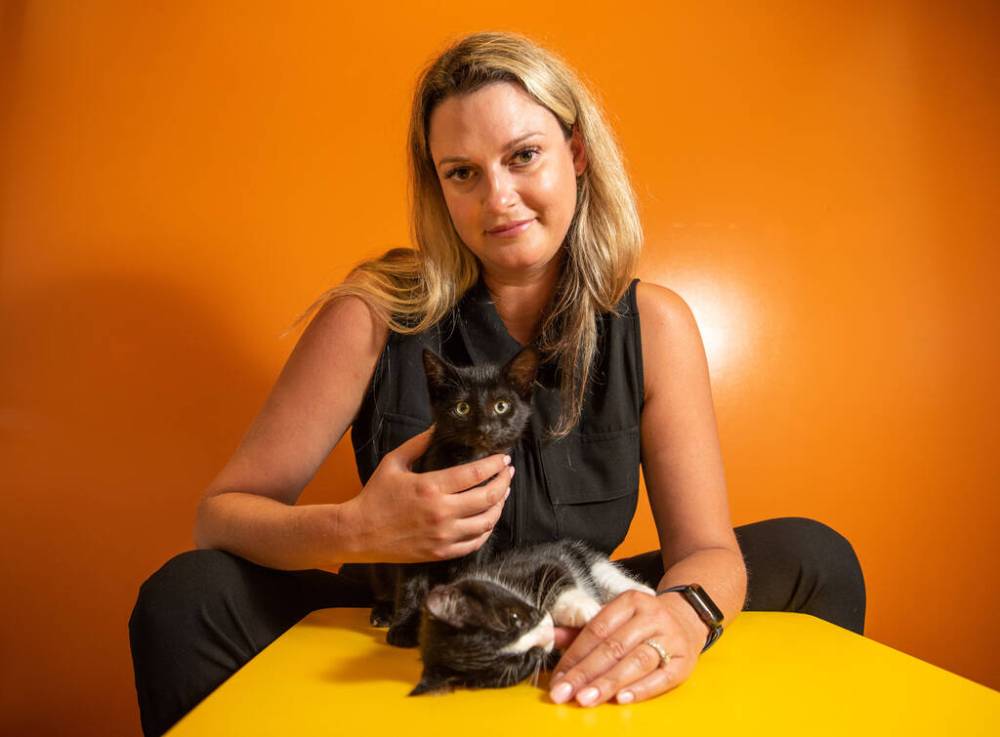Raining cats and dogs at Winnipeg Humane Society
Advertisement
Read this article for free:
or
Already have an account? Log in here »
To continue reading, please subscribe:
Monthly Digital Subscription
$1 per week for 24 weeks*
- Enjoy unlimited reading on winnipegfreepress.com
- Read the E-Edition, our digital replica newspaper
- Access News Break, our award-winning app
- Play interactive puzzles
*Billed as $4.00 plus GST every four weeks. After 24 weeks, price increases to the regular rate of $19.00 plus GST every four weeks. Offer available to new and qualified returning subscribers only. Cancel any time.
Monthly Digital Subscription
$4.75/week*
- Enjoy unlimited reading on winnipegfreepress.com
- Read the E-Edition, our digital replica newspaper
- Access News Break, our award-winning app
- Play interactive puzzles
*Billed as $19 plus GST every four weeks. Cancel any time.
To continue reading, please subscribe:
Add Free Press access to your Brandon Sun subscription for only an additional
$1 for the first 4 weeks*
*Your next subscription payment will increase by $1.00 and you will be charged $16.99 plus GST for four weeks. After four weeks, your payment will increase to $23.99 plus GST every four weeks.
Read unlimited articles for free today:
or
Already have an account? Log in here »
Hey there, time traveller!
This article was published 06/07/2022 (1198 days ago), so information in it may no longer be current.
The Winnipeg Humane Society is brimming with cats and dog after a high number of people surrendered their pets.
“As of (Tuesday), we were at max capacity. We had one kennel open, and so that puts us in a dangerous position because we want to be able to take in any animals needing emergencies,” said CEO Jessica Miller.
The humane society is caring for more than 400 animals, and 160 on surrender waiting lists. In recent months, it has been operating at around 85 per cent capacity, Miller said.

Staff have reported owners can’t pay rising medical costs and are forced to turn in their pets. Other reasons include people returning to work post-pandemic or being unable to manage animals with behavioural problems.
The society offers multiple programs to subsidize the cost of food, medical expenses and behavioural training. Miller suggests people access these resources first and only consider surrendering their pet as a last resort.
Pet care can be expensive, especially in the case of an emergency, but it’s an owner’s responsibility. Ultimately, the best place for animals is at home, she said.
This is not the first time the shelter has been overwhelmed.
Last summer, wildfires in Manitoba forced many people to evacuate their homes and left hundreds of animals in need of shelter.
This spring, flooding did the same.
“What I think is a bit different this time is that we haven’t seen a lot of surrenders in Canada due to people going back to work… its a bit of an altered perspective that we’re seeing from some people, which is just pushing us over the edge again,” she said.
Fortunately, adoption numbers have been rising steadily. Up to 70 animals have been placed in homes each week, signalling a return to pre-pandemic levels.
Cats make up the majority of animals in the shelter and are adopted at twice the rate of dogs, she said.
Miller encouraged people who want to get involved with the humane society and other shelters to volunteer, foster, adopt and donate money.
“I’m confident with the help of the community… we will get through it,” she said.
Even before the pandemic, shelters across Canada were dealing with an influx of animals, said Dr. Keri Hudson Reykdal, president of the Manitoba Veterinary Medical Association.
“We have quite a severe shortage of veterinarians and (registered veterinary technologists). A lot of us are very concerned,” Hudson Reykdal said.” I feel very stressed out. I feel very worried for our profession… it keeps me up at night.”
Many vets have reached retirement age while others have left due to burnout and unsatisfactory working conditions, she said.
The result is increased medical expenses and more animals ending up in care. The problem affects both domestic pets and livestock, and Hudson Reykdal expects it will get worse before it improves.
Around 410 veterinarians currently work in Manitoba. Hudson Reykdal estimates the province needs at least 100 more to meet the demand.
Resolving the problem requires support from the federal government. Increasing funding for veterinary schools and creating a program to expedite the immigration process for foreign veterinary professionals could be possible solutions, she said.
tyler.searle@freepress.mb.ca

Tyler Searle is a multimedia producer who writes for the Free Press’s city desk. A graduate of Red River College Polytechnic’s creative communications program, he wrote for the Stonewall Teulon Tribune, Selkirk Record and Express Weekly News before joining the paper in 2022. Read more about Tyler.
Every piece of reporting Tyler produces is reviewed by an editing team before it is posted online or published in print — part of the Free Press‘s tradition, since 1872, of producing reliable independent journalism. Read more about Free Press’s history and mandate, and learn how our newsroom operates.
Our newsroom depends on a growing audience of readers to power our journalism. If you are not a paid reader, please consider becoming a subscriber.
Our newsroom depends on its audience of readers to power our journalism. Thank you for your support.

